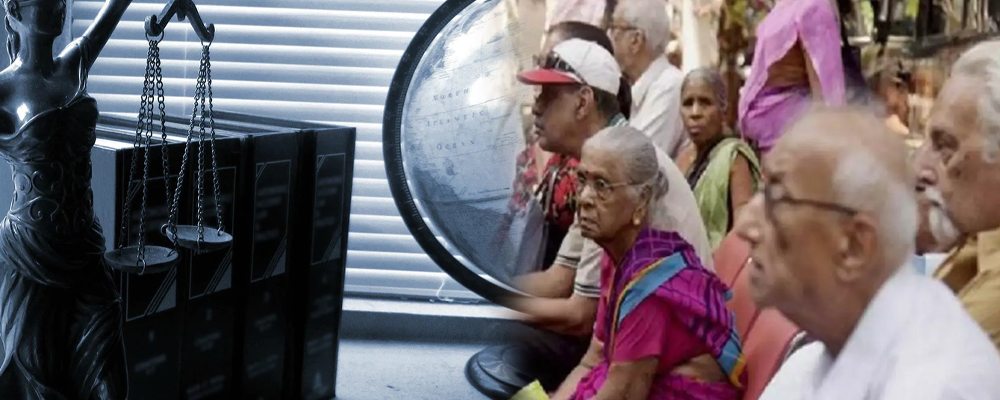Ageing is a natural process which leads to weak bodies and minds. It is not only the duty of the family members but also of the state also to take care of senior citizens. Here we will discuss the rights of elederly people.
Indian Constitution:
The Indian Constitution provides protection of rights of senior citizens. Directive Principles of State Policy i.e. Part IV of the constitution, Article 41 directs the state to make effective provisions for securing right to work and public assistance in certain cases which includes old age. Article 46 envisages the state to protect the economic interest of weaker sections.
Personal Laws:
Hindu Laws:
The legal provision of maintenance of parents under Hindu personal law is mentioned in section 20 of Hindu Adoption & Maintenance Act, 1956. This Act is the first personal law in India which entitles children to maintain their parents and this obligation is not limited to sons but is extended to daughters as well.
Muslim Laws:
- Children are bound to maintain their parents, especially when they are not able to earn something.
- A son under stressed circumstances is bound to maintain his mother.
- A son, maybe poor, not earning sufficient income, shall maintain his father, who earns nothing. Sons and daughters both are responsible to maintain their parents.
Need A Legal Advice
The internet is not a lawyer and neither are you. Talk to a real lawyer about your legal issue

Christian and Parsi Law:
These laws do not provide the provision of maintenance hence, governed by Criminal Procedure Code.
Criminal Procedure Code:
It is a secular law and governs people belonging to all religions and communities. Section 125 (1) CrPC mentions that any person having sufficient resource cannot neglect or refuse to maintain his father or mother who are unable to maintain themselves.
Government Policies:
National Policy for older person:
National Policy for older people promotes the health, safety and social security and well being of senior citizens in India. This policy encourages families to take care of the family members who are above the age of 60. Policy has launched new schemes:
- Strengthening primary health care system
- Training of medical personnel
- Promoting concept of health ageing
- Reservation of beds for elderly people
- Provision of food at subsidised rates
National Council for Older Persons:
It is constituted by the Ministry of Social justice and empowerment. The objective of the policy are to advise the government on policies and programs, provides feedback to the government for creating provisions for old people.
Integrated Program for Older Person:
It was implemented in 1992, which imposes that 90% of the project cost is provided to NGO for running & maintenance of old homes and medical care units.
Ministry of health & family welfare:
- Separate queues for older persons in medical units.
- General clinics in several govt. hospitals
Lead India understands special health needs of older people where it caters your free legal legal questions regarding any laws for elderly people. Senior Citizens are always warmly welcomed to get free legal advice for all the benefits available to them so you can reach out to us in case of any legal problem.





 Talk to a Lawyer
Talk to a Lawyer